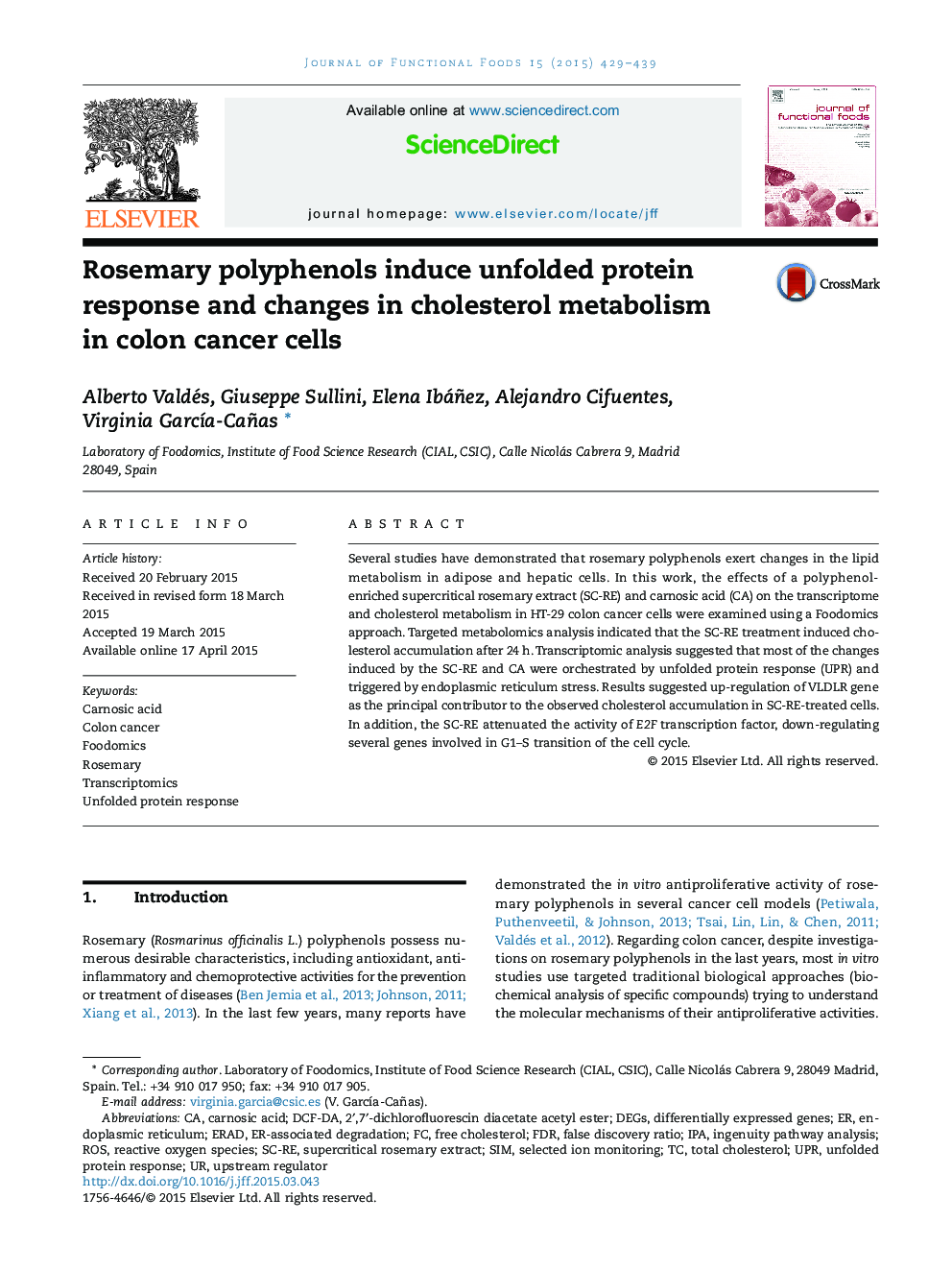| کد مقاله | کد نشریه | سال انتشار | مقاله انگلیسی | نسخه تمام متن |
|---|---|---|---|---|
| 1219946 | 1494549 | 2015 | 11 صفحه PDF | دانلود رایگان |
• A Foodomics strategy to study metabolic and transcriptomic changes in HT-29 cells.
• Rosemary polyphenols induced unfolded protein response in colon cancer cells.
• Supercritical rosemary extract induced cholesterol accumulation in HT-29 cells.
• Cholesterol accumulation could be explained by induction of VLDLR gene expression.
• Supercritical rosemary extract attenuated E2F transcriptional activity in HT-29 cells.
Several studies have demonstrated that rosemary polyphenols exert changes in the lipid metabolism in adipose and hepatic cells. In this work, the effects of a polyphenol-enriched supercritical rosemary extract (SC-RE) and carnosic acid (CA) on the transcriptome and cholesterol metabolism in HT-29 colon cancer cells were examined using a Foodomics approach. Targeted metabolomics analysis indicated that the SC-RE treatment induced cholesterol accumulation after 24 h. Transcriptomic analysis suggested that most of the changes induced by the SC-RE and CA were orchestrated by unfolded protein response (UPR) and triggered by endoplasmic reticulum stress. Results suggested up-regulation of VLDLR gene as the principal contributor to the observed cholesterol accumulation in SC-RE-treated cells. In addition, the SC-RE attenuated the activity of E2F transcription factor, down-regulating several genes involved in G1–S transition of the cell cycle.
Journal: Journal of Functional Foods - Volume 15, May 2015, Pages 429–439
